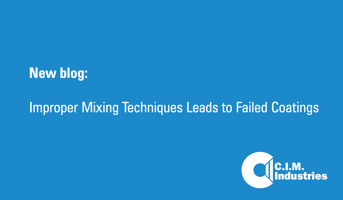Waterproofing membranes, waterproofing coatings, and waterproof linings are terms that can be...
Concrete Surface Preparation Methods When You Can’t Sandblast
The first thing that usually comes to mind when people think of profiling concrete to prepare for coating application is sandblasting. Unfortunately, this method may not always be practical. Sandblasting is loud and can create excessive dust so other alternatives are sometimes required.
When applying elastomeric coatings over concrete, abrading the surface is almost always required. This prerequisite to abrading the surface is twofold:
1) Remove the “laitance” or weak surface layer of the concrete.2) Create an anchor profile for the coating to adhere.
The requirement which most coating manufacturers use to measure the roughness of the concrete surface is the Concrete Surface Profile or “CSP”. CSP was developed by the International Coating Repair Institute (ICRI) and is divided into 10 classifications often depicted by molded rubber comparison chips (CSP 1-10) as shown below.
Related Article: Hardness Scale Tests Explained

Here is a general outline of surface profiles required for various coating thicknesses:
Coating thickness Surface Profile- Thick films such as 4-10 mil epoxies CSP 3
- High build coatings from 15-50 mils CSP 4 or 5
- 40 mils to 1/8” thick CSP 5 or 6
- Topping applications from 1/8” to ½” CSP 6 or 7
- Concrete overlays greater than ½” CSP 8 or 9
Below are steps for concrete repair and surface preparation:
- Inspect the concrete for condition, cleanliness, dryness, and surface preparation required.
- Remove and repair any deteriorated concrete with new concrete or repair mortar.
- Remove any contaminants such as oil, grease, waxes with detergent or heavy-duty cleaners or degreasers.
- Create a surface profile by sandblasting, steel shot blasting, ultra-high-pressure water blasting, or scarifying.
List of Surface Preparation Processes
Steel Shot Blasting – Process where steel shot is centrifugally propelled through a machine onto a substrate. This process abrades or roughens up the surface. This equipment is capable of producing CSP 3-7. The drawback is that it can only profile horizontal surfaces.
Scarifying – It is sometimes called milling machines or surface planers. This machine uses multi tipped carbide cutting wheels rotating at high speeds to chip away and pummel concrete surfaces. This equipment is usually used to achieve a CSP 4-9. For most applications, the scarified surface should be run in a cross-hatch pattern to optimize the surface profile. Scarifies surfaces are available in large self-powered “walk-behinds” to small hand-held versions which are excellent for small projects. They can also come with vacuum attachments to help contain dust.
Needle scaling –A tool that pulverizes the surface of concrete by pneumatically or hydraulically pounding steel rods into the surface. This tool is usually used for profiling small areas of concrete.
Water jetting – It is used to roughen concrete using jets of high pressure and ultra high pressure water, typically 5,000 – 40,000 psi. An experienced water jet technician can produce a surface profile as low as a CSP 3 and high as a CSP 10. Water jetting is a dust free alternate to sandblasting.
Grinders and Power Hand Tools- There are many options of grinders and other power tools but it is important to choose one that will not smooth the concrete but provide a surface profile. Grinders like the MBX Bristle Blaster works well.
The list above is just a few of the types of abrasive blasting choices. There are many options which can be used as long as you can impart the profile that the coating manufacturer requires to maximize adhesion and long term coating performance.
Please contact us If you have any question regarding the preparation process or our products.





